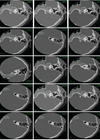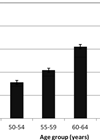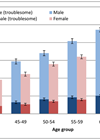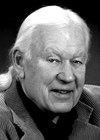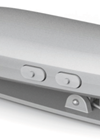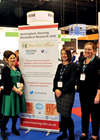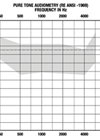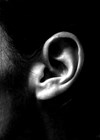Audiology features archive for 2015
Living with Usher syndrome
“Usher people often still have sharp, clear central vision. It is the corner of their eye that is missing. This is why the Usher person often does not feel or look blind. In the early days they may not even...
Hearing loss and Alport syndrome
Alport syndrome (AS) includes a group of hereditary diseases caused by mutations in the COL4A3, COL4A4 or COL4A5 genes. These genes are responsible for the biosynthesis of α3, α4 and α5 collagen IV chains, which are located in the glomerular...
The impact of hearing loss in children with Down syndrome
Hearing loss and language development Down syndrome (DS) usually arises due to trisomy 21 and is associated with intellectual disability and risks of developmental delays and difficulties, including hearing loss. Hearing loss is common in children with DS [1]. In...
Branchio Oto Renal syndrome
Branchio Oto Renal Syndrome (BOR) is an autosomal dominant disorder with branchial, otologic and renal manifestations. The presence of clinical signs varies among and within affected families. Three causative genes for BOR syndrome have been reported thus far: EYA1, SIX1...
Hearing in middle-age: hearing impairment, tinnitus and hearing aid use in UK adults
Hearing loss has a well-documented adverse impact on emotional, social and physical well-being. In this article, Dr Piers Dawes from the University of Manchester gives an insight into his team’s recent work analysing the very large UK Biobank data set,...
Tinnitus in middle-age: prevalence and incidence
Population-based studies of tinnitus provide crucial underpinning evidence which highlights the need for further research on the effective diagnosis and clinical management of this heterogenous condition. Furthermore, such studies provide evidence of the burden of this condition both on the...
Hearing loss in the workplace
It is probably accurate to say that most jobs today can be effectively performed by people who have hearing loss. In this article Dr Sam Trychin outlines some of the major issues which should be considered in regard to hearing...
Lost voices – service induced hearing loss on working age veterans
The Royal British Legion campaign for the recognition of hearing loss in serving personnel and veterans In July 2014, the Royal British Legion launched a report entitled Lost Voices revealing that veterans under the age of 75 are three-and-a-half times...
Wireless accessories for hearing aid users: putting the ‘soul’ back into hearing – a case study
The following case study reports on the experiences of a hearing impaired National Health Service (NHS) patient who was given Bluetooth accessories as part of a study into their benefits when used with hearing aids [1]. The name of the...
Help shape the future of mild to moderate hearing loss research
A James Lind Alliance Priority Setting Partnership has been formed to help shape the future of research into mild-moderate hearing loss. Who is the Priority Setting Partnership? The Partnership brings together Hearing Link, Action on Hearing Loss, the British Society...
The changing role of audiology
Audiology has changed dramatically in recent years. Cochlear implants and high power hearing aids have made hearing really available to children with essentially any degree of hearing loss. Those of us who have been in the field for a long...
Evidence based practice in paediatric audiology
Audiology, like most of the health sciences professions, has been working on integrating evidence-based practice principles since the mid-1990s [1]. Professional organisations and regulatory colleges have produced evidence-based clinical practice guidelines, disseminated them to audiologists and collaborated with practitioners to...





